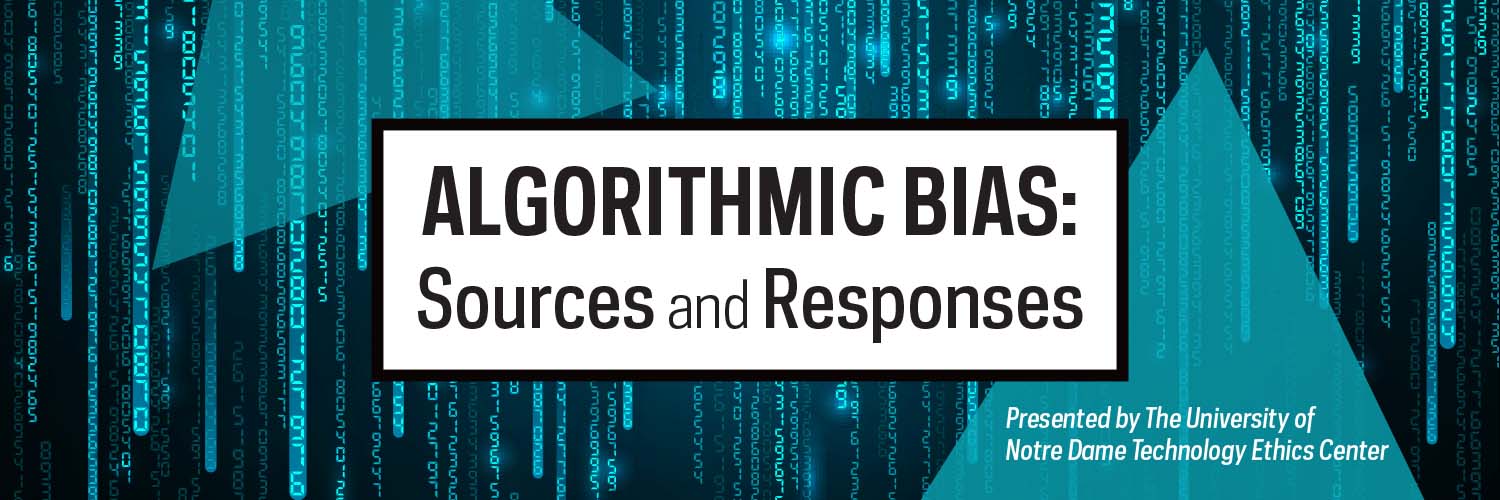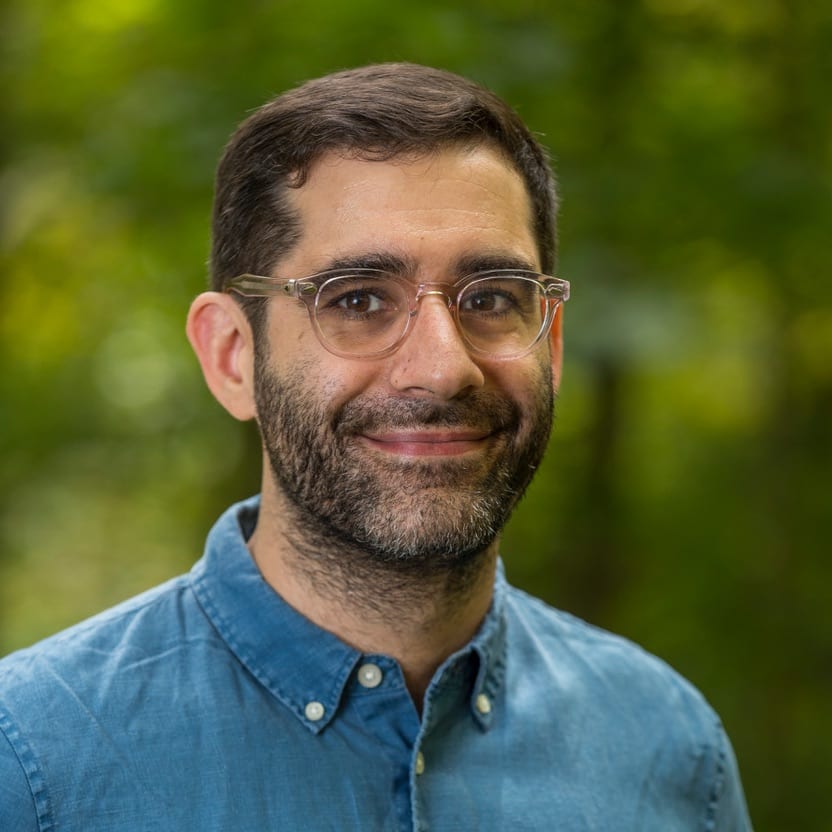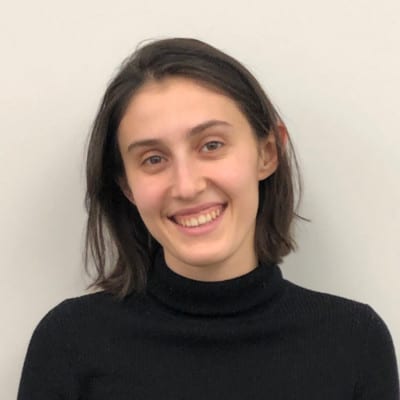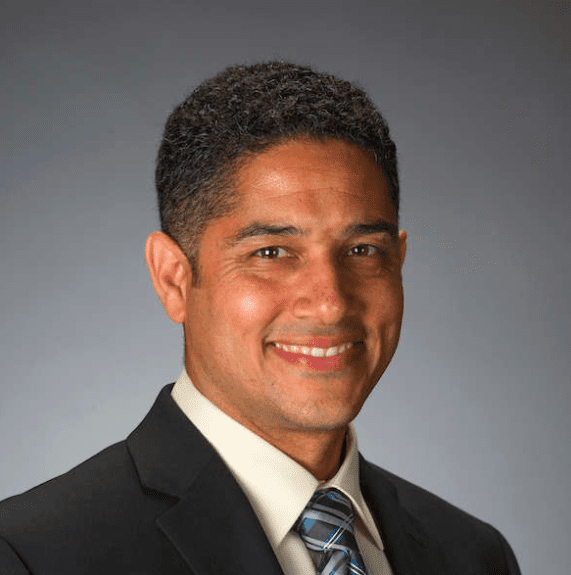Panel 1 (Nov 6, 1 -2 p.m. ET)

What do we mean by “bias” when we talk about “algorithmic bias”? What are the sources of that bias? In what contexts does it manifest, and what problems does it cause?
View the Conference Panel 1
Subscribe to the ThinkND podcast on Apple, Spotify, or Google.
Featured Speakers:
- Solon Barocas, Principal Researcher in the New York City lab of Microsoft Research and an Assistant Professor in the Department of Information Science, Cornell University
- Shaun Barry, Global Leader in the Fraud & Security Intelligence practice, SAS
- Kevin Bowyer, Shubmehl-Prein Professor of Computer Science and Engineering, University of Notre Dame
- Genevieve Fried, Researcher, Office of Senator Chris Coons (D-DE)
- Sara R. Jordan, Policy Counsel, Artificial Intelligence and Ethics at the Future of Privacy Forum
- Ronald Metoyer, Associate Professor of Computer Science and Engineering, University of Notre Dame
Solon Barocas

Solon Barocas is a Principal Researcher in the New York City lab of Microsoft Research and an Assistant Professor in the Department of Information Science at Cornell University. He is also a Faculty Associate at the Berkman Klein Center for Internet & Society at Harvard University. His research explores ethical and policy issues in artificial intelligence, particularly fairness in machine learning, methods for bringing accountability to automated decision-making, and the privacy implications of inference. Solon co-founded the annual workshop on Fairness, Accountability, and Transparency in Machine Learning (FAT/ML) and later established the ACM conference on Fairness, Accountability, and Transparency (FAccT). He was previously a Postdoctoral Researcher at Microsoft Research and Princeton University and he completed his doctorate at New York University.
Shaun Barry '91

Shaun Barry ’91 is a Global Leader in the Fraud & Security Intelligence practice at SAS, where he covers government, healthcare, and utilities. His responsibilities include both pre-sales and implementation for fraud, compliance, and integrity opportunities. He manages a team of fraud subject matter experts who assist in identifying and capturing sales opportunities. He also is responsible for a team of Engagement Managers that directs and provides executive-level management of technology and consulting projects. Mr. Barry has 23 years of experience in working with government, healthcare, pharma, and utilities clients throughout the US, Canada, South America, Europe, and Asia to foster innovative and efficient operations through technology. He specializes in tax/revenue, healthcare, motor vehicle, and fraud/improper payments domains.
Kevin Bowyer

Kevin Bowyer’s research interests touch on many aspects of computer vision and pattern recognition, including biometrics, data mining, object recognition, and medical image analysis. He is a Fellow of the Institute of Electrical and Electronics Engineers (IEEE), a Fellow of the IAPR, a Golden Core member of the IEEE Computer Society, and a recipient of an IEEE Technical Achievement Award. He previously served as the EIC of the IEEE Transactions on Pattern Analysis and Machine Intelligence, and the IEEE Biometrics Compendium, and as General Chair or Program Chair of a number of major conferences. He is the General Chair of the 2017 IEEE International Conference on Automatic Face and a Chair of the 2017 CVPR Media Forensics Workshop. One specific area of focus is face recognition, a technology that has encountered controversy in recent years because of claims of bias, but that is an area Bowyer is working to improve.
Genevieve Fried

Genevieve seeks to understand the affordances and limitations of technology, as well as the social, political, and economic conditions needed to make technological development effective and constructive. She holds a B.A. in Computer Science and Political Science from McGill University, where she focused on machine learning. She worked in the Reasoning and Learning Lab—and artificial intelligence research group—at McGill as an undergrad, and managed that lab upon graduation. She also worked at Microsoft over consecutive summers as a software developer and program manager
Upon graduation, she worked briefly at Oxford University as a policy researcher before transitioning to AI Now Institute at New York University. At AI Now, she is involved in research around the impact of algorithmic technology on domains like housing, education, and criminal justice and works closely with the law and policy team. Her particular research interests are in the geopolitical implications of artificial intelligence.
Genevieve is serving with Senator Chris Coons (D-DE) and supporting on issues of algorithmic accountability and justice.
Sara Jordan

Sara R. Jordan is Policy Counsel, Artificial Intelligence and Ethics at the Future of Privacy Forum. Her profile includes privacy implications of data sharing, data and AI review boards, privacy analysis of AI and Machine Learning (AI/ML) technologies, and analysis of the ethics challenges of AI/ ML. Sara is an active member of the IEEE Global Initiative on Ethics for Autonomous and Intelligent Systems. Prior to working at FPF, Sara was faculty in the Center for Public Administration and Policy at Virginia Tech (2014-2020) and in the Department of Politics and Public Administration at the University of Hong Kong (2007- 2013). She is a graduate of Texas A&M University and the University of South Florida.
Ronald Metoyer (Moderator)

Ronald Metoyer is an associate professor of computer science and engineering at the University of Notre Dame. He received his Ph.D. from the Georgia Institute of Technology where he worked in the Graphics, Visualization, and Usability Center with a focus on modeling and visualizing the motion of pedestrians in urban and architectural scenes. In 2001, he joined the faculty in the School of Electrical Engineering and Computer Science at Oregon State University, and in 2002 he received an NSF CAREER Award for his work in “Understanding the Complexities of Animated Content.” After 14 years at Oregon State University, Dr. Metoyer joined the University of Notre Dame as an associate professor and associate dean in the College of Engineering. Dr. Metoyer’s research is focused on human-computer interaction and information visualization where he seeks to support end-users in dealing with the large amount of data becoming available from a growing number of sources.
